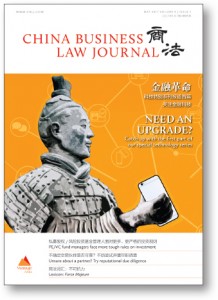Our May issue features the first article of a special series on technology. Fintech revolution explores the rapid development of fintech – the fusion of traditional finance and modern technology – in China and the wider Asian region. Fintech has brought a financial revolution to the lives of many people, including those without easy access to banks. Some suggest that the Asia-Pacific has surpassed the US and Europe to become the main hub of innovation for fintech, but the fierce competition in this sector has only just kicked off. The ongoing development of fintech may spawn the advent of new innovations that we cannot even imagine for the time being. The most popular fintech sectors are mostly consumer-oriented, such as online payment and lending, but the conception of fintech can and should cover much more than that. Artificial intelligence, big data, cloud computing, blockchain, smart contracts, robo-adviser, as well as regulatory technology (regtech) and insurance technology (insurtech), are also fintech topics that should not be overlooked.

Meanwhile, traditional ways of financing are no less important. Money rules investigates the landscape of private equity and venture capital (PE/VC) investment in China. According to PricewaterhouseCoopers, although the proceeds raised and the amounts invested by PE/VC funds on the whole showed a decline globally in 2016, the Chinese market made a strong showing, with proceeds raised and amounts invested both setting new historical highs. While the activities of Chinese PE/VC funds remain strong, the market is also moving towards more mature regulation. Both the China Securities Regulatory Commission (CSRC) and Asset Management Association of China (AMAC) have issued a number of rules or documents to further keep PE/VC investment in check. Apart from knowledge of investment, fund managers also need to be aware of various compliance issues.
In many transactions, knowledge about the other party is also essential. Knowledge is power analyzes how reputational due diligence can help investors to unearth information about the other party that they may not find through other types of due diligence. Reputational due diligence can support other types of due diligence in identifying contradictions between how the other party has presented itself and how it behaves in the real world, says the author. The article focuses on the use of reputational due diligence in the contexts of mergers and acquisitions, compliance for anti-bribery and anti-corruption, and anti-money laundering.





















